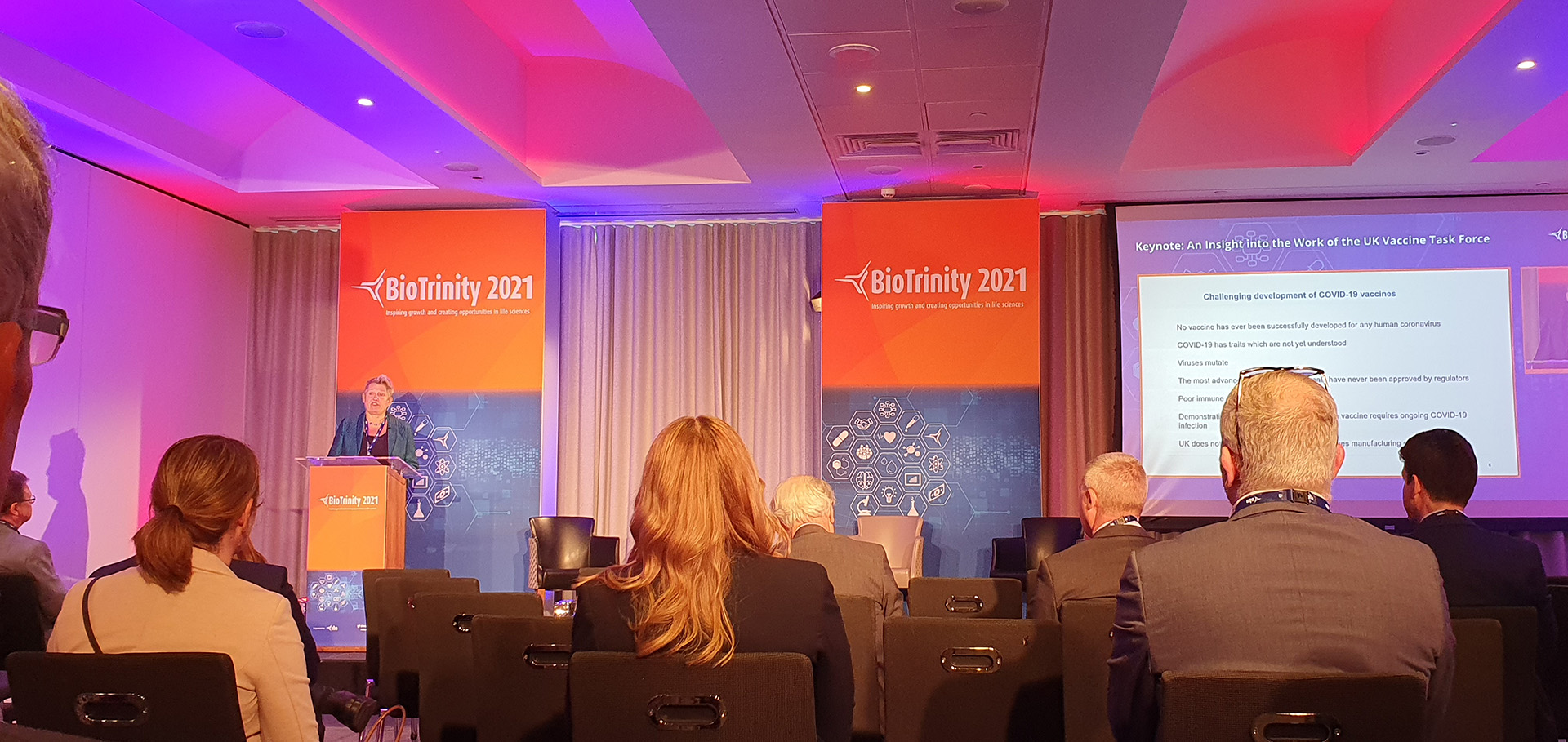COVID-19 has changed how we interact with people and has forced us to re-evaluate how we collaborate. For sure, people have come to realize that working and interacting remotely can be very efficient. However, many people do miss the dynamic of face-to-face interaction with others.
For many conference-goers, the experience of purely virtual events seems to have been underwhelming, at best. With the mass vaccination campaigns in full swing, travel restrictions are slowly being eased and in June 2021 we started to see the first hybrid events.
In June, our colleague Sascha Hartmann, Director of Business Development at Symeres, attended the ‘BioTrinity 2021 – Live Interactive Hybrid Event’ in London. This European Biopartnering and Investment Conference was held both virtually and face-to-face. We asked him about his experience of being at his first live event in over a year.
Just like most of the rest of the world, my last business travel was in February 2020. The lockdown in the UK was strict and people needed to stay home as much as possible. During this time, I attended a lot of virtual meetings, conferences, and webinars and hosted some for Symeres.
For BioTrinity, I traveled from Birmingham to London by train, which was already a slightly unfamiliar experience. Beside the fact this was my first train ride since the lockdown, it felt different. Usually, train stations are crowded, and so is London, but at that time it was almost eerily quiet. This was also the case at the hotel I was staying at. On the plus side, finding a convenient hotel in London was relatively easy.
My experience at BioTrinity was very positive. At first, I was concerned people would be cautious and apprehensive about face-to-face interaction, but, in fact, attendees behaved in a fairly relaxed manner. There were COVID restrictions, of course. People were wearing masks and keeping a distance, but it was still possible to network and everyone was at ease. Because I was on location, this enabled me to interact with people by engaging in those chance meetings you only get by being there. In contrast, during a digital meeting, it is very challenging to engage with people outside prebooked partnering meetings.
At the venue, accompanied by a small vendor exhibition, there was a program of plenary lectures and biotech showcase presentations, which were also broadcast live. Recordings of all sessions were available on demand throughout the conference and for some time afterwards. A partnering platform enabled delegates to prebook meetings, which could be attended live on site or be conducted digitally. So, even though I was present in London, I did have some virtual meetings with people who couldn’t attend in person.
Interestingly, I learned that virtual meetings are quite expensive to set up and run, due to the necessary IT management behind the infrastructure, on top of the cost of the physical event. These events are at least as expensive as purely physical events, which felt counterintuitive. It may be, therefore, that, in future, many organizations will be reluctant to host these hybrid events, which essentially mean double the cost. When we look at what is planned for the immediate future, BioTrinity indeed seems to be the exception to the rule. It remains to be seen what organizers will do and what participants will prefer when travel restrictions ease.
For now, I’m really looking forward to the next step, which will be getting back to the office every once in a while, and meeting my colleagues at Symeres in person again.

